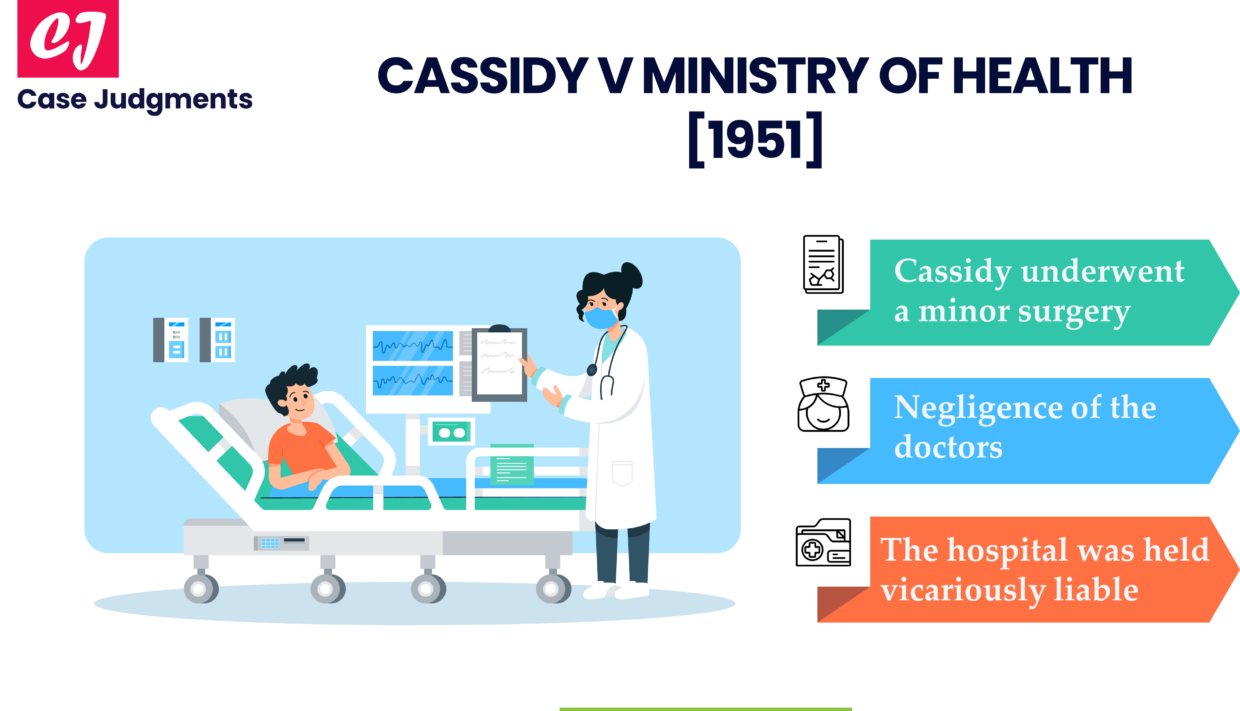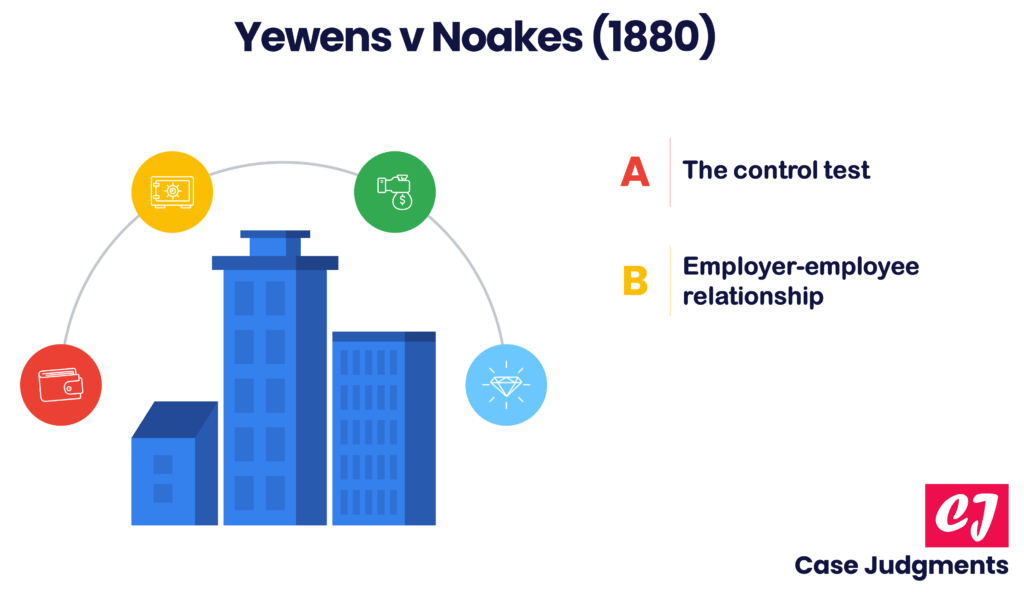
Cassidy v Ministry of Health [1951]: Facts and Principles
Cassidy v Ministry of Health [1951] is an important tort and labour law casethat deals with the concept of Res Ipsa Loquitur (Latin for “the thing speaks for itself”) and the liability of a hospital for the negligence of its employees.
The case details are as follows:
| Case name & citation: | Cassidy v Minister of Health [1951] 2 KB 343 |
| Court and jurisdiction: | Court of Appeal; England and Wales |
| The bench of judges: | Somervell, Singleton and Denning, L.JJ. |
| Area of law: | Employment status under labour law; vicarious liability |
Facts of the case (Cassidy v Ministry of Health)
The plaintiff underwent medical surgery for his two stiff fingers at a hospital run by the defendant. As a result of the negligence of one of the doctors involved in the operation, the plaintiff’s hand became stiff affecting majorly all of his fingers. The plaintiff brought a lawsuit against the hospital authority, alleging negligence and seeking to establish vicarious liability.
The defendant contended that the doctors or the staff operating were not considered as its servants as it did not exercise control over how they performed their duties. Hence, it should not be held vicariously liable.
Issue
Whether the hospital authority was liable for the negligence on the part of its doctors.
Judgment of the Court in Cassidy v Ministry of Health
The Court held that the hospital authority was responsible for the negligence of its doctors. The doctor operating the surgery (or doctors involved in the incident) was to be categorized as a servant of the defendant because the defendant had chosen him/her for the job and the person was fully integrated into the defendant’s organization. Their selection was not based on the patient’s choice. Therefore, the defendant was held liable for the negligent actions of the doctors during the course of their employment at the hospital.
Applying the doctrine of Res Ipsa Loquitur
In this case, the doctrine of Res Ipsa Loquitur was applied.
The plaintiff said, “I went into hospital to be cured of two stiff fingers. I have come out with four stiff fingers and my hand is useless. This should not have happened if due care had been used. Explain it if you can.”
Given this, it was established that since the plaintiff had suffered an injury during a medical procedure performed by the hospital staff and the exact cause/particular employee responsible for the negligence cannot be identified by him, the hospital authority will be presumed to be negligent unless it proves that none of its employees had acted negligently during the treatment. In other words, the doctrine of Res Ipsa Loquitur was applied. This doctrine allows the court to infer negligence on the part of the hospital authority based on the nature of the accident itself, even without direct evidence of negligence. The circumstances surrounding the case were such that the injury could not have occurred without some degree of negligence on the part of the hospital or its staff.
Quotes from the case
Denning LJ gave the following views:
“I take it to be clear law, as well as good sense, that, where a person is himself under a duty to use care, he cannot get rid of his responsibility by delegating the performance of it to someone else, no matter whether the delegation be to a servant under a contract of service or to an independent contractor under a contract for services.”
“……Whenever they accept a patient for treatment, they must use reasonable care and skill to cure him of his ailment. The hospital authorities cannot, of course, do it by themselves: they have no ears to listen through the stethoscope, and no hands to hold the surgeon’s knife. They must do it by the staff which they employ; and if their staff are negligent in giving the treatment, they are just as liable for that negligence as is anyone else who employs others to do his duties for him.”
Conclusion
The level of control exercised by a superior over his subordinates plays a major role in determining an employer-employee relationship. However, since the case of Cassidy v Minister of Health, it has been evident that relying solely on the control test can be inadequate, especially in a hospital setting. This case established that hospitals can be held liable for the negligence of doctors who are employed on a full-time basis by them. The control test alone cannot be sufficient to determine liability in such situations. Because in the case of a professional employee such as a doctor, the employer may lack knowledge of the specific field and may not be able to exert direct control over the doctor’s practice.
List of references:
- https://lawjournal.mcgill.ca/wp-content/uploads/pdf/5523213-picard.pdf
- https://core.ac.uk/download/pdf/301539656.pdf
- https://carlilandcarbolic.com/tort-law/specific-duties/medical-negligence/
- https://www.primerus.com/files/magco/Article%2012.pdf
- https://www.lawteacher.net/cases/cassidy-v-moh.php
You might also like:
More from labour law:

